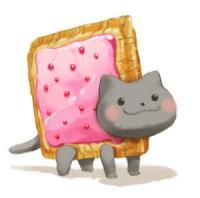so are there any "shortcuts" to develop this project?
No.
If short shortcuts existed, then obviously everybody would not take the long and complicated route they follow now.
In other words, current practice is the most optimal route that we know.
I wanted to start making a tool like this, where should I begin?
Do you have programming experience? If not, that's the first step. Use the programming language you know, or pick one (I tend to suggest Python, but C# or Java work too.) and start coding.
Before you can make a tool like you want, you have to understand what it should do. Not at high level, like "a trading card game" with a lot of magic wand waving of implied functionality, but at actual code level with concrete functions that the user can call for his game.
Chances are you have no idea what that means, so that's the next step to work on.
Surprisingly, the best way to work on that is by making the games that your tool should produce. Make a dozen or so trading card games, each one as different from the others as possible. Different tactics, different game mechanics, different everything.
The idea is that you explore the solution space. What kind of problems have to be solved in games like this? What tools does a designer of a card game need or use to make his game?
Once you have made several games, you will start to see patterns. A simple pattern is the concept of a card collection. Every single game has it, so it's a problem that each game must solve. That is thus something your tool may need to provide. You get a list of things that can be useful for your tool.
Once you think the list is reasonable complete (a very hard decision to make), take the list, and decide what things should be delivered by your tool. Also, decide the functionality of each thing. A card collection is one, but does it have a size? Can I have different cards in the same collection with different size? Can cards be added or removed from the collection during play? Can you merge or split collections? etc etc.
Likely, some things are mostly unique to a few games, and should not be added to the tool. The other way around happens too. If you look at the things you want to be delivered by your tool, are there glaring gaps somewhere, can you think of a game that you want to make, but your tool would not deliver enough functionality for it?
The next job is to actually write a program that delivers the things of the list along with the functionality that you think is needed. For a card collection, the output could be a YAML or XML file with descriptions of all the cards. The program must produce that file. what do you need to enter in the program as designer, to achieve that?
Likely it needs something called "card collection editor", where a designer can enter and edit his cards, change sizes and design, enter what each card does, perhaps run some stochastic checks to check balance between game card combinations, etc.
Once you did that, you have version 1 of the tool.
Next, test it. By yourself first. Make all the previous games again, but in the tool now. Does that work? what is missing? what can be improved? etc etc.
Likely you conclude improvements are recommended, and you improve the tool, and try again.
Once you're happy with the tool, give it to others. Quite likely, they will hate it, and give you a lot of feedback of how things should work, and improved. More improvements on the tool to do, and try again yourself, and others.
When others also think it's a useful tool, it's mission accomplished!
One tool for making trading card games.
As you can see, a quite lengthy path. You may never get anywhere near the end. Other options are to make trading card games, and try to re-use code and work processes with each new game. In that case there is not a formal thing that is called "tool", you'd have a library of common code, and a way of working, that you could call "tool" too, except it's a more personal tool.
If this works for you, you never reach the point of being able to give someone "a tool". It's your decision whether or not that is a bad thing.
Anyway, whatever you decide, since in this forum, the subject is programming, I'd recommend you start with the first step, learn programming.
If designing games is more attractive to you instead, the "design" forum is a better place to ask questions.








